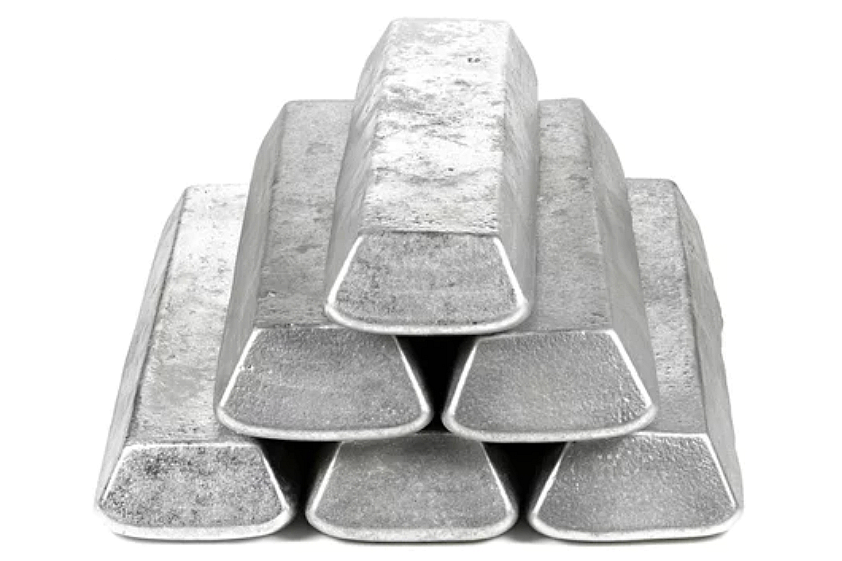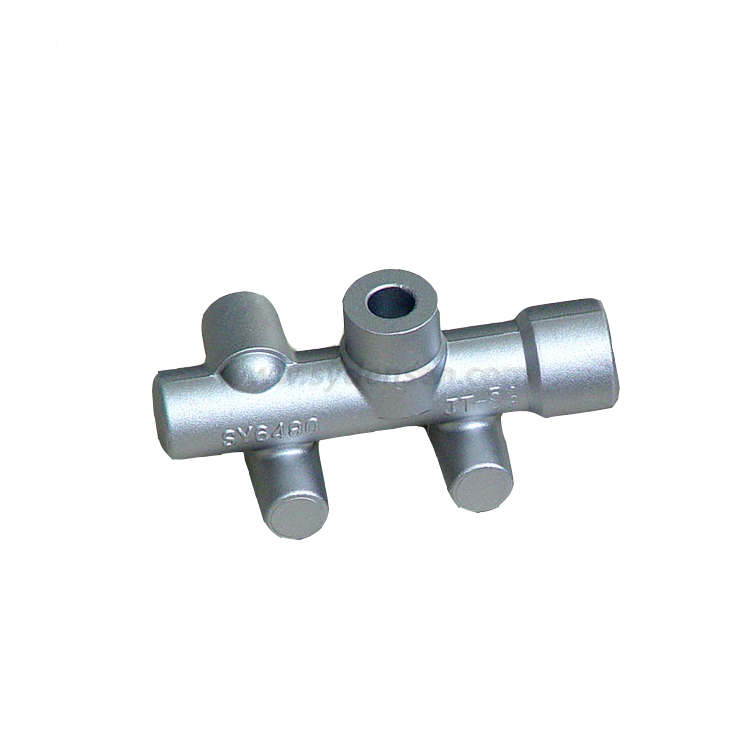Precision aluminum casting applications across commercial sectors
The Effect of Cutting-edge Foundry Services on Lasting Production Practices
Innovative foundry solutions play an important role ahead of time lasting manufacturing methods. By integrating recycling modern technologies and energy-efficient procedures, these services considerably reduce ecological influence. Shops can recover useful materials, therefore reducing dependancy on virgin sources. As automation and lean production concepts get traction, manufacturing effectiveness is maximized. The full degree of these innovations and their ramifications for the future of manufacturing continue to be to be explored.
The Role of Advanced Recycling Technologies in Foundries
Advanced recycling modern technologies are transforming the landscape of foundries by boosting material recovery and decreasing waste. These innovative procedures permit factories to redeem valuable steels and materials from scrap, lessening reliance on virgin resources. By incorporating innovative sorting, shredding, and melting strategies, factories can effectively extract usable materials from disposed of products, thereby advertising a round economic situation.
Moreover, these innovations support the manufacturing of top quality alloys and components, ensuring that recycled products satisfy rigorous market standards (aluminum casting). As a result, shops are not only boosting their product efficiency yet additionally lowering the environmental influence related to traditional production approaches
This change in the direction of progressed reusing not just boosts financial viability for foundries but also aligns with international sustainability objectives. Eventually, the incorporation of these innovations stands for a considerable progression in the mission for lasting production techniques within the shop field.
Power Effectiveness: Lowering Consumption in Manufacturing Processes
Power performance in producing procedures is crucial for sustainable operations. Methods such as procedure optimization strategies, sustainable power combination, and waste warmth recovery play vital duties in reducing energy intake. By concentrating on these areas, manufacturers can substantially reduce their environmental impact while boosting efficiency.
Process Optimization Techniques
A considerable number of making facilities are increasingly embracing process optimization techniques to boost power performance and lower intake. These strategies involve refining and evaluating production workflows, determining traffic jams, and executing automation to simplify procedures. By leveraging information analytics, suppliers can keep an eye on energy use in real-time, allowing aggressive modifications to decrease waste. Techniques such as Lean Production and Six Sigma emphasis on maximizing and eliminating ineffectiveness source allocation. Additionally, advanced modern technologies like Web of Points (IoT) sensing units give insights into equipment efficiency, promoting predictive upkeep that prevents energy loss. Generally, these process optimization approaches not only contribute to decreased power intake but also cultivate a culture of continuous renovation within producing atmospheres, aligning functional experiment sustainability goals.
Renewable Resource Combination
Several manufacturing facilities are significantly incorporating eco-friendly power resources to boost overall power effectiveness and reduce dependence on typical power grids. This change includes the adoption of solar, wind, and biomass power, which can greatly lower and reduce operational costs carbon footprints. By utilizing these lasting energy resources, manufacturers not only minimize their ecological effect but also improve power strength. Furthermore, incorporating renewable resource systems often involves innovative innovations such as energy storage and smart grid solutions, which enhance energy use and facilitate real-time surveillance. This assimilation supports manufacturers in attaining regulative compliance and conference sustainability objectives while promoting technology in production processes. Eventually, renewable resource integration stands for a crucial shift in the direction of even more sustainable production methods and lasting viability.
Waste Warmth Recovery
Integrating sustainable energy sources establishes the stage for more improvements in energy performance, particularly via the application of waste warm recuperation systems. These systems capture excess thermal power created throughout making processes, which would otherwise be lost to the atmosphere. By repurposing this heat, factories can considerably minimize their power consumption, lower functional prices, and reduce their carbon impact. The recovered warm can be used for various applications, such as heating, power generation, or preheating raw materials. Therefore, waste warm recovery not only boosts power effectiveness yet additionally adds to a lasting production design. Cutting-edge shop services that prioritize this modern technology are paving the means for an environmentally accountable commercial landscape, straightening earnings with eco-friendly stewardship.
Using Eco-Friendly Materials in Factory Workflow
As the need for sustainable manufacturing techniques expands, foundries are progressively turning to eco-friendly products to boost their procedures. By incorporating sustainable alternatives, such as recycled metals and bio-based binders, shops can substantially lower their ecological impact. These products frequently require much less energy for processing and can minimize dangerous discharges during manufacturing.
The fostering of environment-friendly materials not only straightens with regulatory criteria but likewise fulfills customer preferences for greener products. Shops are exploring innovative choices, such as utilizing natural additives that improve mold and mildew top quality while staying non-toxic.
The change to lasting materials cultivates a round economy by promoting resource reuse and minimizing waste. Additionally, this change can boost the general effectiveness of shop procedures, as green products often show remarkable homes, bring about enhanced product performance - aluminum casting. Inevitably, the application of environment-friendly products stands for an essential step towards sustainable production in the foundry sector

Advancements in Waste Management and Reduction Techniques
The change towards environment-friendly materials why not check here in shop procedures paves the way for developments in waste management and decrease methods. Ingenious foundry solutions are progressively adopting strategies that decrease waste generation and promote recycling. Techniques such as closed-loop systems permit the reuse of materials, greatly decreasing the volume of waste produced throughout making procedures. In addition, advancements in purification and splitting up innovations enable the reliable recovery of beneficial spin-offs, which can be rehabilitated right into the manufacturing cycle.
In addition, the execution of real-time surveillance systems gives data-driven understandings right into waste generation patterns, assisting in educated decision-making to optimize source use. Shops are likewise checking out biowaste services, converting natural waste right into energy or usable products, additionally promoting sustainability. These innovations not just add to a round economy yet likewise enhance the overall ecological efficiency of foundry operations, emphasizing the industry's commitment to lowering its ecological footprint.
The Influence of Automation on Lasting Manufacturing
While numerous markets goal for sustainability, automation becomes a crucial consider improving sustainable manufacturing techniques within factories. By incorporating automated systems, foundries can accomplish higher effectiveness, lower waste, and reduced power intake. Automated processes enable for precise control over production criteria, minimizing defects and remodel, which consequently preserves sources.
Moreover, automation assists in the surveillance of ecological influences, making it possible for real-time adjustments that line up with sustainability objectives. Aluminum Casting Company. Advanced robotics and artificial knowledge can maximize material usage, resulting in significant decreases in scrap and emissions
Furthermore, automated technologies promote much safer workplace by taking care of harmful jobs, therefore improving worker wellness while making certain compliance with ecological laws. Generally, the fostering of automation within shops not just simplifies operations however additionally plays a crucial duty beforehand sustainable manufacturing methods, adding to a much more liable commercial landscape.
Case Researches: Successful Application of Sustainable Foundry Practices
Effective application of lasting practices in shops can be shown via different case research studies that highlight quantifiable results and cutting-edge techniques. One noteworthy example is a mid-sized foundry that adopted a closed-loop water reusing system, minimizing water usage by 40% and decreasing wastewater generation. In addition, this center transformed to utilizing green mold materials, which not just enhanced product top quality however also boosted worker safety and security.
One more substantial instance involved a huge factory incorporating renewable resource sources, such as photovoltaic panels, which balance out 30% of its power needs. This campaign not only decreased functional expenses but additionally added to a substantial reduction in carbon exhausts.
Last but not least, a factory that applied lean production strategies reported a 25% rise in effectiveness, resulting in much less material waste and maximized production processes. These cases collectively highlight the substantial try these out benefits and sustainability innovations possible via cutting-edge foundry practices.
Often Asked Questions
Exactly How Do Cutting-edge Foundry Solutions Add To Total Sustainability Goals?
Cutting-edge shop solutions boost total sustainability objectives by enhancing source use, lowering Home Page waste, and boosting power effectiveness. These innovations add to lower carbon impacts and advertise ecologically responsible practices within the manufacturing industry, sustaining more comprehensive sustainability efforts.
What Are the Economic Advantages of Adopting Lasting Factory Practices?
Adopting sustainable foundry techniques can minimize functional expenses, boost resource efficiency, and boost competition. Additionally, these techniques can bring in eco-conscious clients and investors, inevitably leading to boosted earnings and long-lasting financial feasibility for services.
Exactly How Can Small Factories Execute Sustainable Advancements Effectively?
Little factories can execute sustainable developments efficiently by embracing energy-efficient technologies, maximizing resource usage, training staff on sustainable techniques, working together with providers for environmentally friendly materials, and involving in constant enhancement processes to minimize waste and exhausts.
What Certifications Exist for Lasting Factory Operations?

How Do Consumer Preferences Influence Sustainable Production in Foundries?
Customer preferences considerably affect lasting manufacturing in foundries by driving demand for environment-friendly items. As customers focus on sustainability, foundries adapt their methods, including greener modern technologies and products to satisfy market expectations and enhance their competitive benefit.
By repurposing this warmth, foundries can significantly minimize their energy consumption, reduced functional costs, and lessen their carbon footprint. Shops are likewise checking out biowaste options, converting organic waste right into power or useful products, additionally promoting sustainability. By integrating automated systems, foundries can achieve greater efficiency, minimize waste, and reduced power usage. One more considerable case involved a large shop incorporating eco-friendly energy resources, such as solar panels, which offset 30% of its power needs. Ingenious shop services improve total sustainability objectives by maximizing resource usage, lowering waste, and improving energy effectiveness.